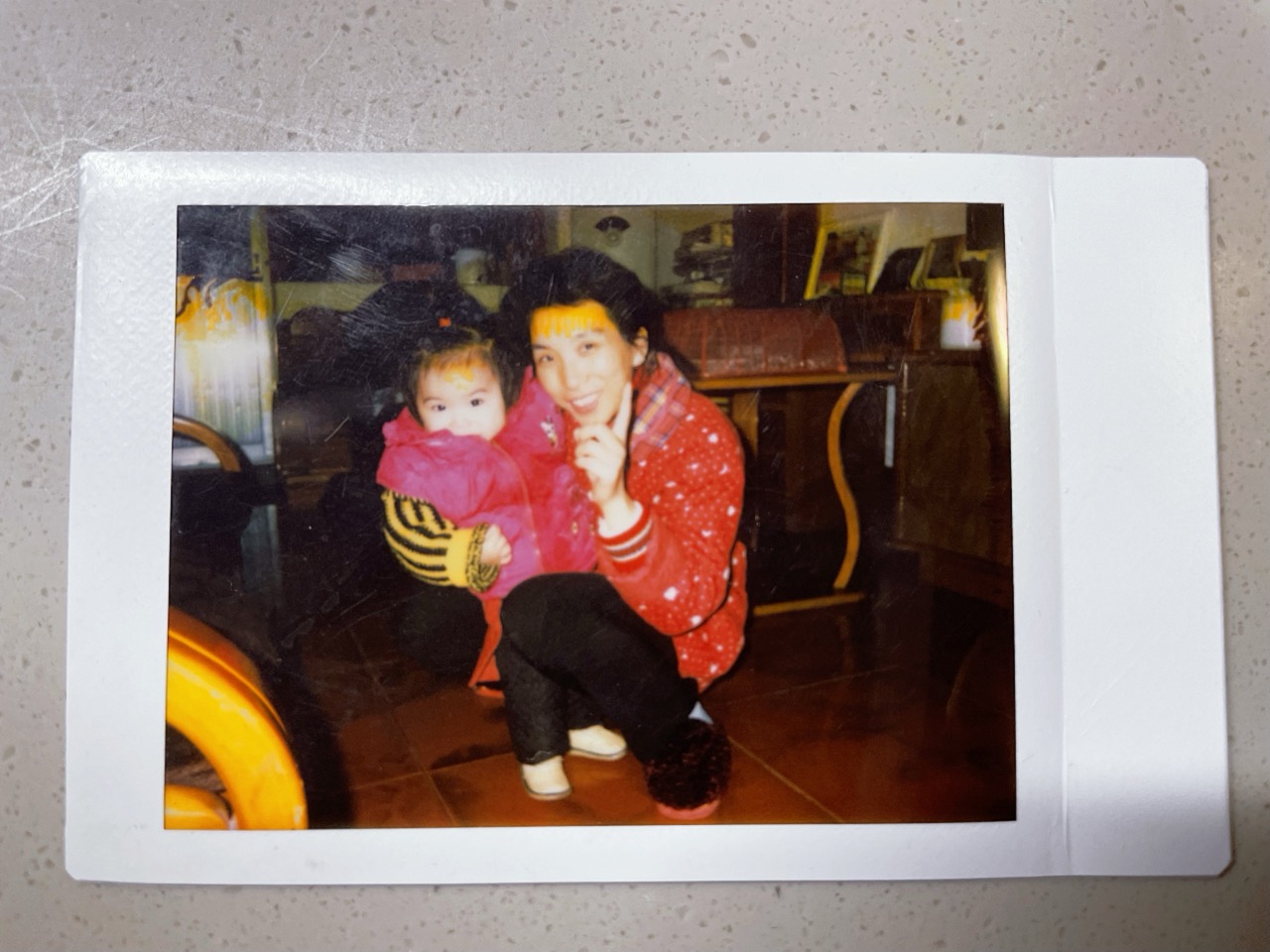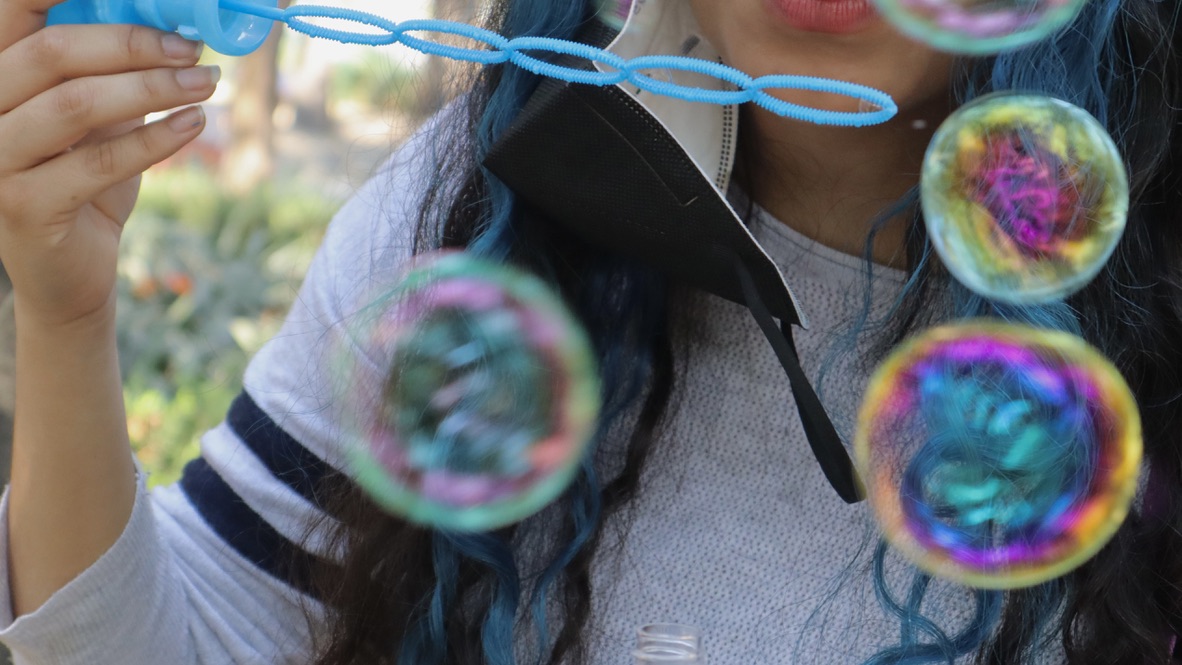Since middle school, my mother never worried about my schools. She was older than most mothers, and unlike other parents, she gave me complete freedom. But with that freedom came the pressure of self-reliance.
One day, I vented to her about how hard it was. It seemed like my friends always had their parents guiding them—helping them with academics, career choices, even life decisions. But since high school, I had been entirely on my own. Sometimes, I wished I could be a child forever, never having to grow up. I understood, though, that full freedom often comes with full responsibility.
That day, my mother told me a story about her own time studying abroad.
“I understand how you feel,” she said.
“When I was studying in Japan back in 1990s, many of my classmates came from Taiwan, Shanghai, and Guangzhou. Some had parents who flew all the way to Japan to help them settle in—finding apartments, unpacking their belongings. Others received letters and care packages from home.
When I left home, I had only a thousand US dollars, not enough for my tuition of my language school. But even that money never passed through my hands—it was given directly to a guarantor. At home, your grandfather was bedridden, and your grandmother couldn’t read or write. I had to work three jobs while studying, just to earn my master’s degree. For three years, I only slept four hours everyday and the only thing I dared to buy from a vending machine was a single bottle of mineral water.
Every time I saw my classmates receive letters from home, I was consumed with envy. Back then, there was no WeChat, no phone at home. A letter from family was worth more than gold. And I had never received one. Back then, whenever I made a call, it had to be from a public payphone, using a prepaid card that cost 1,000 yen—a fortune to me at the time. The person picking up was always my eldest brother, a government official, the only one in the family with a landline. Your grandmother would wait at his house for my call.
In Japan, New Year’s Day is like celebrating the Lunar New Year. Every year around this time, the entire building would empty out—everyone would leave to reunite with their families. And there I was, alone in my apartment, surrounded by silence. In those moments, I felt incredibly lonely.
There was a time when I was so exhausted that I felt like I couldn’t hold on any longer. I called my family back home, and your grandmother told me, ‘You gave up such a good job in China to go abroad. Now that you’ve left, don’t even think about coming back.‘ My sister added, ‘Do you know how many people envy you?‘
So I gritted my teeth and kept going. In my room, I broke down, sobbing uncontrollably, letting it all out.
But you know when I stopped envying my classmates? It was when I went to Tokyo with my friends on a school visit. In Ikebukuro, I saw people—entire families—sleeping on the ground. There were children among them, begging for food from strangers. And at that moment, I realized: there are so many people in this world struggling just to survive. But I—I had the privilege to study, to work.
Later, I slowly came to understand that my parents, even if they couldn’t send me letters like my classmates’ parents, had already done everything they could. I learned that your grandmother, waiting for my call, would sit by the landline for hours. Your uncle would urge her to go to bed, but she refused, saying, ‘I can’t sleep until I hear from Hanping (my mother’s name).’
They did their best. They didn’t know how to write. They had no money to send, no letters filled with words of encouragement. But they loved me with everything they had. And so, I stopped comparing myself to others.
Even now, when I visit your grandmother in Wuchang, she always insists on making me a fresh meal—even if it’s not always the most delicious. And yet, she herself eats whatever is about to go bad. I tell her over and over to eat the fresh food too, but she always smiles and says, ‘I’m fine, don’t worry about me.‘ She loves me so much, even now, and I am always deeply grateful. Water flows downward, just like love flows through generations. Just as your grandmother loves me, I love you.”
“I’ve reached an age where I no longer care what others think of me,” my mother said.
“But I care about Yumi. Right now, I may not be able to help you much. You handle everything on your own, as always in the past. I don’t understand what you’re studying. I’m not living with you. But no matter what you decide, I will always believe in you, like I always did. I will always support you. And when you think about it like that… doesn’t that make you luckier than some of your friends?”
The reason why I love my mother so much.
我的妈妈年纪比其他妈妈都大,比起别的父母,她给了我充分的自由。但随之而来的是需要自己努力的压力。某一天,我和妈妈吐槽,觉得很辛苦,身边同学们的父母似乎一直在给他们提供事业和学业上的指导和帮助,而我从高中起就没有依靠过父母。有时候也好想做一个永远长不大的小孩。我很清楚充分的自由对应的往往是充分的责任。
我妈妈给我她讲了她当年留学的故事。她说她其实能够理解我的感受。
“我当时在日本的时候,身边有很多同学,来自台湾的,成都的,上海的北京的。有的父母亲自来到日本帮孩子租房子整理东西,大陆的同学会收到家里人寄的信。而我出来时只有一千美金,这一千美金也没有经过我的手,交给了担保人,外公瘫痪在家,而家家又不会读书写字、大字不识。我一直半工半学,每天打三份工作,完成了硕士学位。三年来只敢在自动贩卖机前买下一瓶矿泉水。每一次我看到身边的同学收到家里人寄来的信的时候,都会非常非常得羡慕。那个时候没有微信电话,我家里也没有电话,家书抵万金。每次打电话都是在公共电话打,一张卡一千日元,在当时的我看来可贵了。接电话的人是大舅,大舅当时是处级干部,只有他那里才有座机。家家会在大舅那里等我的电话。
日本元旦是过年。每到这个时候,整栋楼里的人都走光了,他们去和他们的家人团聚。而我一个人待在家里,四周静悄悄的,那个时候妈妈觉得好孤独。
有一次,妈妈实在是太累了,感觉再也坚持不下去了。和家里人打电话,家家听到后和我说:“你放弃了国内这么好的工作出去,出去了就不要想回来。”你的二姨妈说:”国内多少人羡慕你啊。“于是妈妈咬咬牙坚持住了。在房间里爆哭发泄自己。
我是什么时候不羡慕我的那些同学们了呢?…是我当年去东京和同学们一起访校的时候,在池袋看到了一些人,睡在地上,还有小孩子,他们在向路过的人乞讨,我顿时就觉得,世界上还有很多这样的人,而我还有书可以读工作可以做…
再到后来我就渐渐明白了,我的父母虽然不像别的父母一样能够给我寄信,但是他们已经尽力了。家里人说,家家为了等到我的电话,会一直守在座机旁边,大舅劝家家这么晚了快去睡觉,可是家家不去,坚持待在座机旁边,因为’没有等到汉萍的电话‘。我的父母尽力了,虽然他们在经济上没办法提供帮助,也没办法像我的同学们的父母那样用家书的方式给我一些鼓励,但他们在尽力地去爱我,所以我不再和我的同学进行比较了。
直到现在,我去武昌家拜访家家的时候,家家还会给我做一顿新鲜的饭菜(虽然未必好吃),而自己跑去吃快要放坏的食物。我每次都叫她也吃新鲜的饭菜,但是她总是说着我没事,要我不要管她。她直到现在是这么得爱我,所以我总是很感恩。
水往下流,就像家家爱我一样,我也好爱你。妈妈到这个年纪了,谁怎么看我我都不在乎。可是我在乎优美。优美开心我就开心,优美不开心我就不开心。
妈妈虽然现在没办法给你帮上什么忙,什么事都是你自己在做,你学的东西我也都看不懂,只能给你洗洗衣服做做饭,但是妈妈永远相信你的决定,不管做什么妈妈都会支持你。这样想想,是不是会觉得比其他同学幸福很多哇”。
我很爱我的妈妈。



